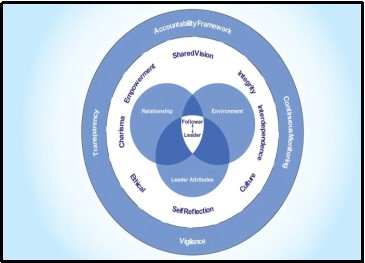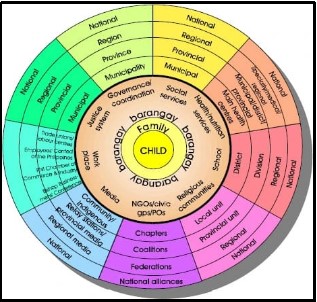Leadership and Management in Early Childhood Education and Care (ECEC) EDL402
- Subject Code :
EDL402
Introduction
Leadership in places that offer early childhood education and care (ECEC) is crucial to ensure a quality learning environment. Administrative ECEC is not simply working engagements of the routines of educational child care but entails creating additionally nurturing and cooperative relations for common, family and staff while supporting the profession at the local, national and global spheres. In this report I elaborate and explain the concepts central to the theory of transformational leadership, its theoretical framework, and its impact on management practices in early childhood standard facilities. Knowledge of these factors is fundamental in any educational leadership effort towards establishing a productive learning milieu.
Discussion
1. Key Principles of Leadership and Transformational Leadership Theoretical Management in Early Childhood Settings

Figure 1: Transformational Leadership Theory
(Source: Rolfe, 2019)
Leadership and management that is evident in ECEC settings is based on several principles that include teamwork, sharing of information and aims at working towards the accomplishment of common objectives (Fonsn et al., 2022). Transformational leadership is rooted in the theory of transformational leadership proposed by James Burns in 1978 and further developed by Bernard Bass. As shown in Figure 1, transformational Leadership theory style of leadership emphasises on the pursuit of a common goal and growth of early -childhood in an organizations staff.
Transformational leadership theory is characterized by the following key principles:
- Visionary leadership: The transformational team leader vision, therefore, lies in offering care and education in Early Childhood Settings that is of high quality, to foster young childrens development (NAEYC, 2020 n.d.).
- Empowerment of staff: Transformational leaders foster excellent staff relationships; among them entailing delegation of duties and opportunities for staff promotion which enables them to enhance their practice (Fonsn et al., 2022).
- Collaboration and teamwork: Leadership in ECEC also therefore has to be collaborative so that all the staff can work cohesively for the benefit of the children (ACECQA, 2020).
- Support and guidance: In the early childhood supporting team settings this will imply that the team assists educators in their practice to be able to ponder, solve problems, and carry on with their professional learning (DET, 2023).
- Promoting innovation: Creativity is nurtured in transformative leadership practice that requires staff to be more innovative and devise new methods of working.
In an early childhood setting transformational leadership theory principles mean actions on the ground that enhance the quality of care and education given to children. Thus, transformational leadership guarantees staff cooperation and creative approaches to resolving issues and helps the personnel inspire the children they are responsible for.
2. Building Supportive and Collaborative Environments for Children, Parents, and Staff

Figure 2: Building Supportive and Collaborative Environments for Children
(Source: Manuel & Gregorio, 2023)
Figure 2 illustrates that ensuring support and cooperation form the basis of ECEC setting is desirable in practice. These environments have to be encouraged within the Leader by developing or enhancing the positive relationships within staff, children, families and the community (Lee et al., 2022). This is why it is crucial to establish trust and effective and efficient communication because all those involved in child development need to be appreciated and encouraged to be part of the development.
- Children: In all programs for early childhood education, the interest is always taken toward the welfare of the child. This means the leaders in ECEC are required to establish educational settings, which ensure that children are protected and valued in addition to promoting their learning (Fonsn et al., 2022). This involves differentiation of activities, format, and expectations, and other factors that make or mar a childcare centre, staff members should be very observant in caring for each child.
- Families: Parents and caregivers are important stakeholders in a childs learning process and therefore the leadership in ECEC entails parental involvement in learning (Mevawalla & Hadley, 2023). Leaders or managers in organisations can ensure that they work in cooperation with the families by establishing frequent means of communications with parents, engaging them in the decision-making process and involving them in activities or events.
- Staff: So, caring dedicated and competent staff can only be decisive if they have organizational support from their leaders. It encourages a positive work culture to enhance organizational performance by helping the staff to work together, think creatively and explore ways to innovate in practice (DET, 2023). People managers can assist their subordinates by offering training, working in teams, and acknowledging the staffs efforts and achievements in the company.
- Community: Leaders in ECEC also participate in the process of forming relations with the rest of the wider community (ACECQA, 2021a). The accessibility of the interpreted material with local organisations, schools and service providers may also increase.
As has been demonstrated, communication plays a critical role in ECEC. In this process, leaders ensure that children, families, staff and the community are all valued and their needs are supported (AGDE, 2022). These collaborations result in the improvement of the well-being of children through ensuring that they get the necessary support to develop through all aspects in their lives.
3. Role of Advocacy in Early Childhood Education
Other important elements are advocacy skills as leaders have to be advocating for rights of children, families and staff within early childhood education at various levels (Mevawalla & Hadley, 2023). This means that the needs and/or rights of children and families are promoted and met; educators are provided for and acknowledged; and, finally, the ECEC profession is recognized to be of enormous worth to society.
Advocacy in ECEC operates at three key levels:
- Local advocacy: In this level, the leaders in ECEC speak for the children and families they are suis juris of. This may include; fundraising for extra equipment and materials, campaigning for improved conditions of service for personnel, or change of the center policies to meet the needs of children in diversity (Mevawalla & Hadley, 2023).
- National advocacy: At national level, advocacy is aimed at key policies and laws which are relevant to the ECEC sector (ACECQA, 2021a). There are different ways that leaders can participate in advocacy at the national level, for example they can join professional organizations, lobby and inform the policy makers on the significance of early childhood education.
- International advocacy: Globally, leaders of ECEC have called for international standards in early childhood education as well as the profession (Mevawalla & Hadley, 2023). This may mean conducting activities at the global level, attending conferences and meetings, engaging with other organizations involved in ECCE, or getting involved in initiatives which may have other developmental challenges affecting children globally such as universal education for children.
Having a strong advocate in ECEC entails several communication skills, issues to do with personal and professional ethics, and the power to concert and persuade (ACECQA, 2021b). Therefore, advocacy is much more than making statements or expressing oneself on behalf of the profession; it means establishing relationships, engaging in partnership, gathering information, and arriving at decisions that will lead to the improvement of the lives of children, families as well as educators.
4. The Role of the Educational Leader: Relationships, Responsibilities, and Ethical Practice
The profile of the educational leader in ECEC can be differentiated based on a number of responsibilities that she/he needs to perform in order to facilitate the management of staff, the delivery of educational programs and a promotion of ethical practice (Fonsn et al., 2022). School principals are accountable for the academic climate that is safe, welcoming, and favourable for learning while the development of the human capital.
- Relationships: It is argued that relationship building is the foundation of leadership in ECEC. Public sector managers need to develop positive working relationships with the staff, learners, families, and the broader society in order to foster a positive learning climate (ACECQA, 2021b). These are the relationships that are built on such principles as trust, respect and communication which create a hopeful atmosphere that the student wants.
- Responsibilities: They have the overall supervisory responsibilities for efficient running of the centre, they are charged with the responsibility of designing and implementing the educational programs to be offered in the center as well as the support of staff within the center. This involves being able to offer prompts for professional development, offer feedback/coaching and to guarantee that the staff is abreast with the standards expected by the profession (Movahedazarhouligh et al., 2022). Managers are also held accountable for making sure that the center adheres to the set laws and/ or guidelines which are crucial in as far as meeting of standards in the care and education agencies is concerned.
- Ethical Practice: It is for this reason that ethical practice is a criterion for leadership in ECEC. First, educational leaders need to uphold ethical standards in the way they conduct themselves, and their relations with others including staff, children, and families in the center; second, they have to ensure that the centers policies and practices adhere to the said ethical standards (AGDE, 2022). These are: adoption of diversity; also embracing of the rights of children and families; staff should conduct themselves professionally.
All in all, it can be said that educational leaders in ECEC have an important responsibility of providing young children with the best possible care and education. Leadership shapes organisational cultures that promote well-being of children, families and staff through modelling, being responsible to ethical standards and preventing professionals.
Conclusion
The leadership style discussed above, it is transformational leadership that posits inspiration, empowering and collaboration as key elements and is best suited in early childhood. It is usually the responsibility of the leaders to defend the profession, provide support to their staff and ensure adherence to professional norms. In this way, ECEC professionals can analyse the goals and functions of the educational leader and apply the principles of leadership in order to guarantee that the centers offer the best care and education within the framework of the expectations of the different participations stakeholders.
Are you struggling to keep up with the demands of your academic journey? Don't worry, we've got your back!
Exam Question Bank is your trusted partner in achieving academic excellence for all kind of technical and non-technical subjects. Our comprehensive range of academic services is designed to cater to students at every level. Whether you're a high school student, a college undergraduate, or pursuing advanced studies, we have the expertise and resources to support you.
To connect with expert and ask your query click here Exam Question Bank

